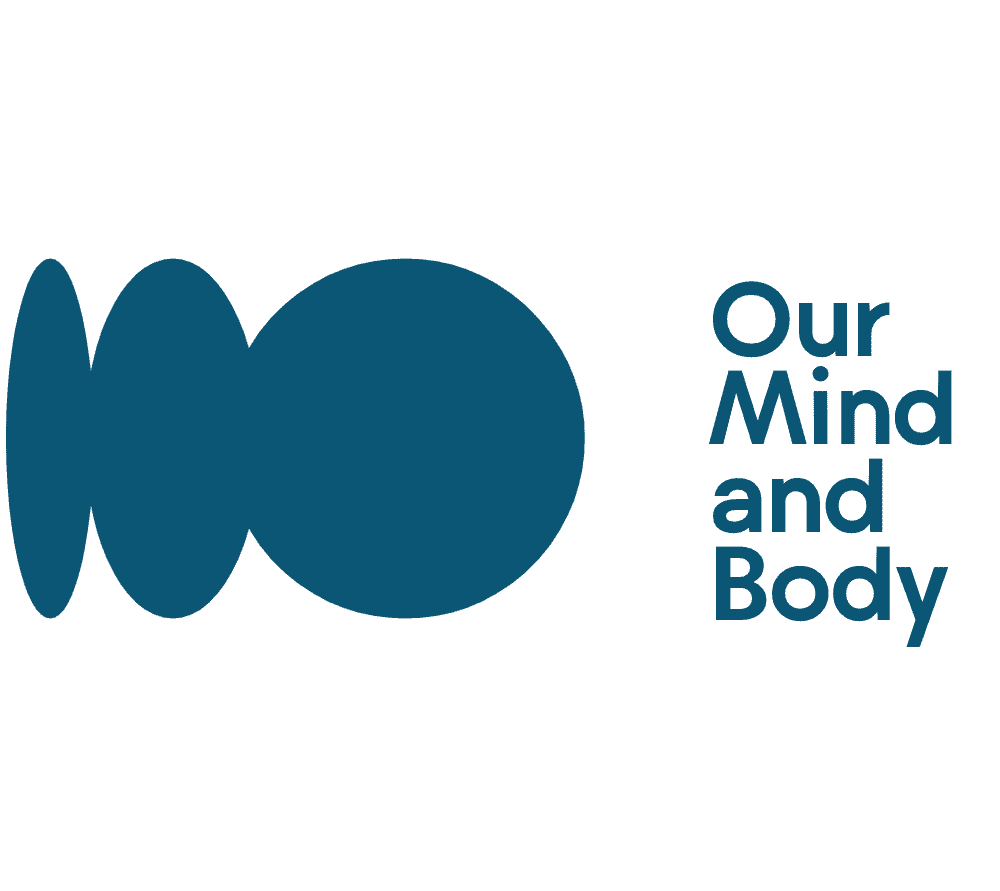Personal Growth
Understanding Stress: Causes, Effects, and Effective Relief Strategies

Stress is a common aspect of life that, if not properly managed, can lead to significant repercussions. It is a longstanding issue that has been encountered by every generation in various forms; nevertheless, the sources and impacts of stress have changed over the years. In essence, what exactly is stress? Stress can be described as any form of physical, mental, or emotional pressure resulting from excessive demands imposed on us, whether they are real or perceived.
When we experience this kind of pressure, our bodies respond with physical symptoms such as rapid breathing and heart rate, headaches, muscle tension and stomach upset. Emotionally speaking, people may feel anxiousness, irritability, anger and depression when dealing with high levels of stress. Although it isn’t always easy to do so – especially during times of great distress – identifying the sources of your stressors and practicing healthy coping strategies are key factors for effective stress relief.
The impact of chronic stress on one’s health cannot be understated: from increased risk for cardiovascular disease to weakened immune system functions – managing and reducing daily stress should become a priority starting now!
Impact On Health
Coping with life’s challenges can be difficult, and often leads to stress-related health issues. Taking the steps necessary to improve your sleep habits is a great way to reduce stress and its related effects on overall health. With this in mind, here are three tips for creating healthy sleep habits:
- Create a relaxing bedtime routine that helps you wind down before going to sleep. This may include reading or taking a warm bath; it doesn’t need to take long but should help cue your body into getting ready for rest.
- Make sure your bedroom environment is conducive to good slumber. Keep it dark and quiet—no bright lights or loud sounds! The temperature should also be comfortable– not too hot or cold.
- Establish consistent sleeping hours so your body gets used to falling asleep at the same time every night (and waking up at the same time each morning). Sticking closely to these times will ensure better sleep quality throughout the week.
When we make an effort to practice healthy sleep habits, our bodies are better able to cope with life’s daily stresses and deal with any additional problems that arise more effectively. In addition, improved sleep hygiene can have many positive benefits on both physical and mental wellbeing – from stronger immunity to better concentration during the day – making it well worth investing some extra time into developing healthier patterns of restful restorative slumber! To learn more about how improving your sleep can benefit you, read on in the next section about ‘Benefits of Healthy Sleep Habits’.
Benefits Of Healthy Sleep Habits
Good sleep habits are an essential part of maintaining a healthy life. When our bodies get the right amount and quality of sleep, we experience many benefits that help us cope with life’s challenges.
| Benefits | How to Achieve Them |
|---|---|
| Better Sleep Quality | Prioritize bedtime routine & wake up time; limit caffeine, alcohol consumption; reduce exposure to screens before bed; create comfortable sleeping environment. |
| Increased Energy | Aim for 7-9 hours of consistent sleep every night; exercise regularly; eat balanced meals throughout the day. |
| Better Moods | Avoid afternoon naps if possible; practice relaxation techniques like yoga or meditation. |
| Improved Concentration | Choose regular times for going to bed and waking up each day, even on weekends; avoid heavy meals late at night. |
| Better Health | Get plenty of natural light during the day by taking walks outdoors or spending time near windows; reduce stress through activities such as reading or listening to music before bedtime. |
These tips can be applied in order to improve your overall health and well being! With good sleep hygiene practices you will be able to reap all these amazing benefits – increased energy, better moods, improved concentration, and better physical health – helping you effectively manage any life stresses. By making positive changes in your lifestyle and implementing healthier habits into your daily routine, you’ll soon start seeing the results!
Signs Of Poor Sleep Habits
We all know the feeling of being exhausted and fatigued after a sleepless night, but do we really understand how poor sleep habits can impact our lives? Poor sleep hygiene leads to fatigue in both the short-term and long-term; it is essential that we recognize the signs of poor sleep habits.
Firstly, one of the most common symptoms of sleep deprivation is difficulty concentrating or staying focused on tasks for extended periods. This lack of focus can cause us to make more mistakes at work or school and have trouble remembering important details. Secondly, some people may experience mood swings due to lack of quality restorative sleep. Low energy levels lead to irritability, anxiety, depression, or even anger issues if left untreated. Thirdly, physical changes such as dark circles under eyes, headaches, soreness in muscles and joints are also indicators of inadequate sleep. Lastly, poor concentration and memory loss are two other effects caused by not getting enough shut eye each night.
It’s clear that there are numerous signs associated with poor sleep habits:
- Difficulty concentrating & staying focused
- Mood swings & low energy levels
- Dark circles under eyes & headaches
- Soreness in muscles & joints
- Concentration & memory loss
If you’re experiencing any of these symptoms regularly then you should take proactive steps towards improving your overall health through better sleep hygiene strategies.
Strategies For Improving Sleep Quality
Now that we have discussed the signs of poor sleep habits, let’s move onto strategies for improving sleep quality. Improving your overall sleep hygiene is vital; it not only helps you get a better night’s rest but also reduces stress levels. Here are some tips to help you out.
First and foremost, establish a consistent bedtime routine that works best for you. Going to bed around the same time every day creates a sense of consistency which can make falling asleep easier. Additionally, limit the amount of time spent in bed awake to 30 minutes or less if possible; this will help create an association between your bed and sleeping rather than being awake in bed all night! Furthermore, avoid using electronics at least one hour before hitting the hay as screens emit blue light which increases alertness making it harder to fall asleep quickly. Other activities such as reading, listening to music or meditating/praying can be incorporated into your pre-bed ritual too – whatever makes you feel most relaxed!
Lastly, try incorporating relaxation techniques into your daily life such as deep breathing exercises or progressive muscle relaxation (PMR). PMR is especially helpful before going to bed because it helps relax tense muscles while calming the mind so that both body and mind become drowsy inducing better quality sleep.
The environment plays a huge role in getting good shut-eye too. Make sure your bedroom is conducive for great slumber by keeping noise levels low, ensuring temperature isn’t too hot or cold and limiting distractions like TV’s or phones etc.; these things could impede on a peaceful slumber so try avoiding them altogether. Another important factor is natural sunlight exposure during the daytime hours so try opening up windows where possible or making use of artificial lamps when necessary! All these environmental factors contribute towards achieving sounder sleep patterns which will enable you to cope with life’s challenges more effectively and reduce stress levels significantly over time.
Environmental Factors Influencing Sleep
When it comes to sleep, our environment plays an important role in helping us get the rest we need. Factors like noise and light pollution can disrupt or even prevent a good night’s sleep if not addressed. There are several lifestyle changes you can make to help create a better sleep environment.
First, try to reduce noise pollution as much as possible by using earplugs or foam inserts for windows and doors. This will help drown out any loud noises that may be keeping you up at night. You should also consider investing in blackout curtains or blinds to keep your room dark during the day so that your circadian rhythm isn’t disturbed by unwanted sunlight entering your room through windows.
It is also essential to evaluate mattress quality when seeking better sleep habits. A comfortable mattress helps support proper body alignment throughout the night, which allows for adequate restorative REM sleep cycles each night. If necessary, consider replacing older mattresses with new ones of higher quality.
By making these simple environmental adjustments, you’re one step closer to reducing stress from lack of sleep and establishing healthier sleeping habits overall!
Establishing A Routine
Sleep is like a hug when life becomes overwhelming. Establishing and adhering to a routine can help reduce stress by providing structure and regularity in our lives. Everyone needs a fixed schedule with a consistent bedtime pattern that works best for them. This means having sleep rituals, such as reading or taking a warm bath before bed, which will help create an optimal sleep schedule.
Creating this type of structure helps us understand what we should expect each day and gives us the ability to plan accordingly. Additionally, it reduces time spent worrying about how much time you have left to do something and instead allows you to focus on completing tasks more efficiently throughout the day.
Having consistency in your daily routines sets up healthy habits that will become automatic over time. With these good habits comes improved self-confidence as well as better overall health from getting enough restful sleep each night. Now let’s explore how making exercise and diet changes can help further reduce stress levels.
Exercise And Diet Changes
Exercise and diet changes are essential for reducing stress. Regular physical activity helps to reduce the amount of cortisol (a hormone associated with stress) in our bodies, while healthy eating habits can improve your overall mood and energy levels. Additionally, these lifestyle changes may help you to better manage sleep issues such as insomnia or poor quality of sleep.
| Exercise | Diet Changes |
|---|---|
| Reduces Cortisol Levels | Improves Overall Mood |
| Increases Energy Levels | Manages Sleep Issues |
| Releases Endorphins | Boosts Immune System |
To get started on incorporating exercise into your routine, start small by taking a 10-minute walk during breaks at work or after dinner each night. As you become more comfortable, gradually increase the length and intensity of your walks until you find an exercise regime that works best for you. Similarly, when it comes to making dietary modifications, try replacing unhealthy snacks with healthier alternatives like fruits and vegetables throughout the day. If possible, plan meals ahead of time so that all ingredients for balanced meals are readily available when hunger strikes!
These simple lifestyle adjustments can put us back in control of our lives and lead to improved wellbeing – physically, mentally and emotionally. Eating right and exercising regularly is not only beneficial from a health standpoint but also creates positive long-term habits which will have life-long effects on our sleep patterns.
Alternative Strategies
When it comes to managing life’s challenges, reducing stress is key. While exercise and diet changes can help, there are other strategies that can help you find relief from everyday stresses. In this section, we’ll explore some alternative approaches to reduce stress with better sleep habits for good.
Meditation is one of the best ways to relax your mind and body before bedtime. It helps calm racing thoughts, increase mindfulness and focus on being present in the moment. Aromatherapy can also be an effective way to destress and prepare for a restful night’s sleep. Essential oils like lavender or chamomile have calming properties which encourage relaxation and deep breathing techniques as part of your wind-down routine.
Yoga is another great way to relax your body while promoting mindful awareness throughout your day. Yoga poses such as child’s pose, forward fold, warrior I & II can all improve flexibility while giving you time to reflect on the present moment without worries about what happened earlier in the day or what might happen tomorrow. Herbal remedies such as valerian root or magnesium supplements may also help provide additional support when dealing with chronic stress levels that interfere with quality sleep patterns.
These practices will not only make falling asleep easier but also create long-term effects that naturally lower stress levels during waking hours as well.
Long-Term Effects
The long-term effects of stress can be devastating. Without making sleep a priority, an individual is more likely to suffer from the consequences of their body’s response to chronic or persistent stress. With poor sleeping habits come numerous health risks that could have been avoided if proper rest was taken into consideration.
Some possible long-term effects of stress include:
- Stress-induced illnesses such as headaches and digestive problems
- Sleep deprivation risks like weak immune system, memory issues and slowed reaction times
- Mental health impact including depression, anxiety and decreased mental clarity
- Physical health consequences like high blood pressure, heart disease and stroke
Making changes in your sleeping habits can help reduce the amount of time you spend feeling stressed out. Regular exercise, healthy eating, relaxation techniques and consistent bedtimes are all important factors in maintaining a balanced life while managing stress levels. As a result, individuals will find themselves better equipped to cope with challenges that arise throughout their lives without having to worry about any potential harmful side effects caused by lack of sleep.
Frequently Asked Questions
What Do I Do If I Cannot Establish A Regular Sleep Routine?
If you’re having trouble establishing a regular sleep routine, don’t worry—you are not alone. Many of us struggle with irregular sleeping patterns and it can be difficult to find the right balance for your individual sleep needs. But there is hope! With some careful planning and dedication, it is possible to establish a healthy sleep schedule that works for you.
Here are some tips on how to get started:
- Sleep Management Strategies
- Make sure that you have an inviting space where you feel comfortable enough to relax before bedtime. This could include setting up blackout curtains or removing devices from the room that may cause distractions like TVs and phones.
- Try creating a consistent pre-bedtime ritual such as reading, meditating, or listening to soothing music; anything that helps calm your mind and body in preparation for restful sleep.
- Plan ahead by preparing everything you need for tomorrow so when it comes time to go to bed at night, your mind isn’t racing about all the tasks still left undone.
As a sleep health educator I highly recommend taking advantage of natural light exposure during the day by going outside whenever possible and avoiding bright screens late into the evening hours which can disrupt melatonin production resulting in difficulty falling asleep at night. Additionally, make sure any caffeine intake is limited throughout the day in order to ensure quality deep sleep later on in the night. These strategies combined with making simple lifestyle changes such as getting adequate exercise earlier in the day will help support better overall health and lead to improved sleep quality over time.
Establishing good habits around our sleeping schedules doesn’t happen overnight but through patience and commitment we can reach our goals of enjoying more restful nights of shut eye soon enough! It takes practice but doing these small things every day will add up quickly leading towards lasting change.
What Are The Most Effective Exercises To Help Reduce Stress?
Are you feeling stressed out and overwhelmed? Do you find it hard to cope with life’s challenges? Well, I’m here to tell you that one of the best ways to reduce stress is by changing your sleep habits for good. But what are the most effective exercises to help reduce stress? Read on for some great stress-relieving exercises that will help bring calmness back into your life!
From classic yoga poses to calming breathing techniques, there are many anti-stress activities designed to help relieve tension from your body and mind. Stress-reducing workouts like running or cycling can be incredibly beneficial in reducing anxiety levels too. And don’t forget about stretching – even just a few minutes of gentle stretching each day can make a huge difference in how relaxed and focused you feel.
Finally, there’s no better way to soothe away your worries than engaging in some simple relaxation practices. Whether it’s taking a warm bath or listening to soothing music, these kinds of activities can do wonders for relieving stress. Plus, they provide an easy escape from everyday obligations and pressures — allowing us all the opportunity we need to truly unwind and recharge our batteries.
As sleep health educators, it’s important that we share our knowledge with others and promote healthy habits when it comes to managing stress levels. So take advantage of these proven strategies today and start enjoying the calming effects of stress-reducing exercises!
Are There Any Dietary Changes I Should Make To Improve My Sleep Quality?
I’m often asked if there are any dietary changes that can help improve sleep quality. The answer is yes! Making some simple adjustments to your diet and eating habits can have a big impact on the quality of your sleep.
When it comes to improving sleep, what you eat matters. Eating certain foods and avoiding others can make a huge difference in how well you rest at night. A balanced diet with plenty of nutrient-rich veggies, fruits, whole grains, proteins and healthy fats is essential for getting good quality sleep. It’s also important to watch your portion sizes as overeating can lead to gastric discomfort which may negatively affect sleep.
In addition to being mindful about food intake, making small nutrition modifications like increasing magnesium or calcium intake or reducing caffeine consumption could also be beneficial for improved sleep. These small nutritional shifts may help reduce stress levels and enhance overall wellbeing. So when it comes to improving sleep quality through dietary changes, take into consideration not only what foods you’re consuming but also when and how much too!
What Are The Short-Term Effects Of Poor Sleep Habits?
When it comes to our sleep habits, many of us are guilty of taking them for granted. Unfortunately, poor sleeping habits can have serious short-term effects on our overall physical and mental health. Sleep deprivation, lack of sleep, and insomnia symptoms caused by disturbed or disrupted sleep all contribute to a wide range of physical and psychological issues. As a sleep health educator, I’m here to help you understand the risks associated with not getting enough restful sleep.
First and foremost, when we don’t get adequate amounts of quality sleep each night, we tend to experience fatigue during the day due to an accumulation of sleep debt. This exhaustion can cause difficulty concentrating at work or school as well as impairing cognitive functions such as problem solving, decision making, memory recall and judgment skills. Poor concentration can lead to mistakes in both your personal life and professional life that could have been avoided with proper restful sleep.
On top of this, inadequate levels of sleep can increase stress hormones which further exacerbates the fatigue while also increasing irritability and moodiness throughout the course of the day. It’s important to note that these emotions may be present even if you don’t realize they’re related to your lack of restful slumber! Additionally, prolonged periods without sufficient restorative shut-eye has been linked to increased risk factors for developing chronic illnesses like diabetes and heart disease over time.
It is essential that everyone makes sure they are getting enough quality shuteye every night so their body can properly recharge and prepare itself for another full day ahead! There are lots of lifestyle changes you can make in order to ensure better sleeping habits such as creating a relaxing bedtime routine or limiting caffeine consumption before bedtime. Understanding how important good quality restorative sleep is will help keep your mind sharp and alert during the day while reducing any potential long-term medical concerns down the road.
Are There Any Alternative Strategies For Reducing Stress?
The question of whether there are alternative strategies for reducing stress is a pertinent one. Studies suggest that poor sleep habits can cause short-term effects such as difficulty concentrating, increased irritability and fatigue. However, it may be possible to mitigate the effects of these poor sleep habits by incorporating other relaxation techniques into our daily lives. Many people have found success with meditation techniques, mindfulness activities, cognitive therapy and various stress management techniques.
One way to reduce stress through an alternative strategy is to practice mindfulness activities on a regular basis. Mindfulness involves being fully present in the moment and consciously aware of your thoughts, feelings and sensations without judgment or reaction. This can help reduce rumination which often leads to increased levels of anxiety and depression. Additionally, practicing cognitive therapy can help individuals identify patterns in their thinking that lead them towards unhelpful behaviors or reactions when under pressure.
Relaxation techniques like taking deep breaths or doing yoga can also be beneficial in managing stress levels. Deep breathing helps bring more oxygen into the body while calming the mind and nervous system; yoga combines physical postures, controlled breathing exercises and meditation which can all work together to promote overall wellbeing. Therefore, using some combination of these different methods has been shown to be effective in helping people cope better with life’s challenges.
It is important for us all to recognize how valuable it is to take care of our mental health during difficult times – introducing relaxation techniques into our daily routine could make all the difference!
Conclusion
As we have discussed, life can be stressful and it is important to develop healthy sleep habits in order to cope. Sleep deprivation increases stress levels, so getting enough rest each night is essential for managing these challenges. By understanding the effects of poor sleep habits, exercising regularly, making dietary changes and exploring alternative strategies, you can reduce your stress levels significantly.
Let’s look at an example of how good sleep hygiene can help with handling life’s challenges. Sally had been struggling with high levels of stress due to her demanding job as a lawyer. She found that she was unable to get more than 4 hours of sleep each night due to her intense workload. After consulting me on ways to improve her sleeping habits and manage her stress better, I recommended that Sally start going to bed earlier by setting specific times for waking up and going to bed every day. Additionally, I suggested that she focus on relaxation exercises and deep breathing before trying to fall asleep. Within two weeks after implementing my recommendations, Sally noticed a huge improvement in the quality of her sleep as well as a reduction in overall stress levels throughout the day.
It’s clear from this example just how beneficial establishing regular sleep habits are for reducing stress in our lives. With proper guidance and dedication, anyone can learn effective techniques for coping with life’s daily struggles while still achieving an adequate amount of restful sleep each night!
Meet Kalinda, the passionate and visionary Editor-in-Chief of OurMindAndBody.com. Kalinda is a beacon of light in the realm of holistic well-being, and her mission is to positively impact the lives of others by inspiring them to embrace a healthier and more fulfilling lifestyle.
With a deep-rooted love for meditation, yoga, and spirituality, Kalinda’s journey toward self-discovery and personal growth started at a young age. She found solace and strength in these practices, which not only helped her cope with the challenges of life but also provided her with a profound sense of purpose. Eager to share the transformative power of these ancient disciplines, Kalinda embarked on a path to spread awareness and understanding.
Personal Growth
The Spiritual Significance Of Shooting Stars: Meaning And Symbolism

Have you ever gazed up at the night sky and witnessed a meteor streaking through the darkness? It’s a moment that mesmerizes us and fills us with wonder and awe.
Shooting stars, both scientifically and spiritually, hold a profound significance. Scientifically, they provide valuable insights into the history and composition of our universe.
But beyond the realm of science, shooting stars carry a deeper, more spiritual meaning. In this article, we will explore the spiritual significance of shooting stars, delving into their symbolism and the profound impact they can have on our lives.
Key Takeaways
- Seeing a shooting star spiritually is believed to bring good luck and positive energy
- Many cultures associate shooting stars with messages from the spiritual realm or the universe
- Shooting stars are often interpreted as a sign of new beginnings or endings
- Symbolic meanings of shooting stars include new ideas, wishes, dreams, and spiritual journeys
What are shooting stars?
I’ve learned that shooting stars are natural phenomena caused by debris from space entering the Earth’s atmosphere, and they burn up, creating a bright streak of light across the sky.
It’s fascinating to think about the mythological origins and cultural beliefs surrounding shooting stars. In many cultures, they are seen as messages from the spiritual realm or the universe. Some believe that seeing a shooting star spiritually brings good luck and positive energy, while others associate them with new beginnings or endings.
The symbolic meanings attached to shooting stars can vary widely, depending on individual perspectives and cultural beliefs. For some, they represent wishes, dreams, and spiritual journeys. Others may see them as signs of transformation, growth, or even bad luck.
Regardless of the interpretation, witnessing a shooting star always leaves a lasting impression, igniting a sense of wonder and awe in those fortunate enough to see one.
Scientific explanation
Astronomers study shooting stars using telescopes and instruments to provide a scientific explanation for the phenomenon. Through the exploration of shooting stars, scientific research on shooting stars has revealed fascinating insights into the celestial world. Here are four key findings:
-
Understanding celestial body movement and composition: By studying shooting stars, scientists gain valuable knowledge about how celestial bodies move and their composition. This research helps piece together the history of our Solar System.
-
Insights into the formation of celestial bodies: Analyzing the fallen meteors from shooting stars allows scientists to determine the age and make-up of the Solar System. This information provides valuable insights into the formation of celestial bodies.
-
Unveiling the evolution of the Solar System: Meteor composition analysis sheds light on the evolution of the Solar System. By studying shooting stars, scientists can understand the presence of certain elements in space and gain a deeper understanding of the Solar System’s evolution.
-
Enhancing appreciation for the phenomenon: Understanding the scientific explanation behind shooting stars enhances our appreciation for this awe-inspiring phenomenon. It allows us to marvel at the beauty of shooting stars while also acknowledging the immense knowledge that scientific research has provided.
Regular occurrence
During meteor showers, I love to search for shooting stars in the night sky. It’s a magical experience that fills me with wonder and awe. To make the most out of these celestial events, it’s important to know the meteor shower dates and the best locations for stargazing. Meteor showers happen regularly throughout the year, with the Perseids meteor shower being one of the most well-known, occurring in August. But there are many other meteor showers that take place annually, each with different levels of activity. To increase your chances of seeing shooting stars, find a location away from city lights for better visibility and choose a spot with an unobstructed view of the sky. By being patient and allowing your eyes to adjust to the darkness, you can fully immerse yourself in the beauty of these shooting stars.
Importance of meteor composition analysis
Analyzing the composition of fallen meteors is crucial for understanding the age and make-up of the Solar System. Meteor shower analysis provides valuable insights into the formation of celestial bodies and the evolution of our Solar System.
By studying the chemical composition of these fallen meteors, scientists can unravel the mysteries of our planetary system. It reveals information about the presence of certain elements in space and helps piece together the story of celestial body formation.
This analysis not only enhances our understanding of the Solar System but also deepens our appreciation for the beauty and complexity of the universe. It is through the study of meteor composition that we gain a glimpse into the vastness and wonder of the cosmos, igniting a sense of inspiration and awe within us.
Tips for observing
To enhance your experience of observing shooting stars during meteor showers, it is helpful to find a location away from city lights for better visibility. The best locations for stargazing are usually in remote areas where light pollution is minimal. Choose a spot with an unobstructed view of the sky to maximize your chances of seeing shooting stars.
It’s also important to be patient and allow your eyes to adjust to the darkness. Additionally, if you’re interested in capturing the beauty of shooting stars through photography, there are a few tips to keep in mind. Use a tripod to keep your camera steady, set a wide aperture to let in more light, and use a long exposure to capture the movement of the shooting stars.
With these tips, you can fully immerse yourself in the awe-inspiring experience of witnessing shooting stars during meteor showers.
Positive spiritual beliefs
Experiencing a shooting star fills me with a sense of positivity and brings a feeling of good luck and possibility. It’s as if the universe is sending a message of encouragement and reminding me of the infinite potential within myself.
When I see a shooting star, I take a moment to reflect and express gratitude for the blessings in my life. I then set positive intentions for the future and visualize my dreams and desires manifesting into reality. This act of manifestation is a powerful spiritual practice that helps me stay focused on my goals and allows me to attract the positive energy needed to achieve them.
It’s a reminder that I have the power to create my own destiny and that the universe is conspiring in my favor. So, the next time you witness a shooting star, take a moment to embrace its positive energy and utilize it as a catalyst for your own personal growth and transformation.
Negative spiritual beliefs
When I witness a shooting star, it fills me with a sense of unease and foreboding, as if it is a sign of impending doom or misfortune. In many cultures, shooting stars are associated with negative meanings and superstitions. Some believe that seeing a shooting star is a symbol of death or a bad omen. These beliefs stem from ancient superstitions and cultural interpretations passed down through generations. The idea of a shooting star representing the end of something or a warning of impending tragedy can be deeply ingrained in our subconscious. This negative symbolism attached to shooting stars serves as a reminder to cherish the present moment and appreciate the blessings in our lives. It encourages us to reflect on our actions and make positive changes to avoid any potential negative outcomes.
| Negative Symbolism | Superstitions about Shooting Stars |
|---|---|
| Death | A sign of impending tragedy |
| Misfortune | Bad luck associated with shooting stars |
| Omen | A warning of negative events |
| Impending doom | A sense of foreboding and unease |
Reflection and gratitude
After witnessing a shooting star spiritually, it is natural to be filled with a sense of wonder and awe. The beauty and fleeting nature of these celestial phenomena leave a lasting impression on our hearts and minds.
As I reflect on the spiritual significance of shooting stars, I am reminded of the importance of gratitude in our lives. Taking a moment to pause and appreciate the magic that unfolds before us can be a powerful spiritual practice. It allows us to connect with the universe and acknowledge the infinite possibilities that exist.
Expressing gratitude for the opportunity to witness such a breathtaking sight opens our hearts and minds to the abundance of blessings that surround us. In these moments of reflection and gratitude, we align ourselves with the positive energy of the universe, inviting more miracles and blessings into our lives.
Cultural interpretations
Cultural interpretations of shooting stars vary widely, with different belief systems attributing various messages and events to their appearance. Throughout history, these celestial phenomena have held immense cultural significance, captivating the imaginations of people from all walks of life.
Here are a few examples of how different cultures have interpreted the spiritual meaning of shooting stars:
-
In ancient Greek mythology, shooting stars were seen as a sign of divine favor or displeasure. They were believed to be the souls of deceased loved ones, guiding and protecting those who witnessed them.
-
Native American tribes viewed shooting stars as communication from the spirit world. They believed that these celestial visitors brought messages from ancestors or spirit guides, offering guidance and wisdom.
-
In Chinese culture, shooting stars are associated with luck and prosperity. It is believed that making a wish upon a shooting star can bring good fortune and help manifest one’s desires.
-
In Hinduism, shooting stars are seen as a symbol of transformation and the cycle of life. They represent the journey of the soul and the potential for spiritual growth and enlightenment.
These cultural interpretations highlight the deep-rooted historical significance of shooting stars and the diverse ways in which they have been understood and revered. They remind us of the interconnectedness of humanity and the universal human desire to find meaning in the natural world.
Symbolic representations
As I delve deeper into the spiritual significance of shooting stars, I can’t help but marvel at the myriad of symbolic representations attached to these celestial wonders.
Beyond cultural interpretations, shooting stars hold a profound connection to astrology and spiritual rituals. They are seen as celestial messengers, carrying messages from the universe to guide us on our spiritual paths.
Many spiritual rituals involve making wishes or setting intentions when a shooting star streaks across the night sky, believing that these desires will manifest into reality. The fleeting nature of shooting stars reminds us to cherish the present moment and seize opportunities for growth and transformation.
They ignite a sense of wonder and awe, inspiring us to pursue our dreams and aspirations. In this vast universe, shooting stars serve as spiritual beacons, reminding us of the infinite possibilities that await us on our journey.
Inspiration and motivation
Experiencing a shooting star ignites a deep sense of inspiration and motivation within me. It reminds me of the infinite possibilities that exist in the universe and the power of our dreams and aspirations. When I gaze upon a shooting star, I am reminded of the importance of finding purpose and pursuing our true passions in life. It serves as a gentle nudge from the universe, encouraging me to take action and follow my heart’s desires. The shooting star represents the fleeting nature of life and the importance of seizing every moment. It reminds me to never give up on my dreams, no matter how big or small they may be. Witnessing a shooting star fills me with a sense of wonder and awe, and it reinforces my belief in the beauty and magic of the world around us.
| Finding Purpose | Pursuing Dreams |
|---|---|
| – Shooting stars remind us of the importance of finding our purpose in life. | – They inspire us to pursue our dreams and aspirations. |
| – They serve as gentle reminders to follow our hearts and do what truly makes us happy. | – Shooting stars symbolize the infinite possibilities that exist in the universe. |
| – The fleeting nature of shooting stars reminds us to seize every moment and make the most of our lives. | – They encourage us to take action and not be afraid to chase after our dreams. |
| – Witnessing a shooting star sparks a sense of motivation and reminds us of the beauty and magic of the world. | – They reinforce our belief that anything is possible if we have the courage to pursue it. |
Magical and enchanting experience
The sight of a shooting star creates a mesmerizing and enchanting moment that captivates my senses. As I gaze at the night sky, a shooting star streaks across the darkness, leaving behind a trail of shimmering light.
In that fleeting instant, I feel a deep sense of connection with the universe, as if the vast expanse of space is reaching out to touch my soul. It is a reminder of the infinite possibilities that exist in the universe and within myself.
The magical nature of shooting stars ignites a spark within me, awakening my spirit and inspiring me to embrace my own journey of self-discovery. In that brief encounter with the shooting star, I am reminded to stay true to my path, to follow my dreams, and to trust in the power of the universe to guide me towards my highest purpose.
Frequently Asked Questions
Are shooting stars actually stars?
No, shooting stars are not actually stars. They are debris from space, such as meteoroids, that enter the Earth’s atmosphere and burn up, creating a bright streak of light across the sky.
Can shooting stars grant wishes?
Shooting stars have captivated human imagination for centuries, with magical folklore suggesting they can grant wishes. While scientific explanations reveal their true nature, the idea of wishes coming true adds a sense of wonder and hope to the experience.
What do shooting stars symbolize in different cultures?
Cultural interpretations of shooting stars vary widely, reflecting the diverse beliefs and historical significance of different cultures. They can symbolize new beginnings, messages from the spiritual realm, hope, and inspiration, among other concepts.
Are there any negative beliefs associated with shooting stars?
Witnessing a shooting star can be a breathtaking experience, but there are some negative beliefs associated with them. Some cultures view shooting stars as omens of death or bad luck, which can have a disheartening effect on those who witness them.
How can witnessing a shooting star impact someone’s spiritual journey?
Witnessing a shooting star can have a profound impact on my spiritual journey. It reminds me of the vastness of the universe and my connection to it. It inspires personal growth, ignites a sense of wonder, and encourages me to pursue my dreams.
Conclusion
As I gaze up at the night sky, witnessing the fleeting beauty of a shooting star, I am reminded of the profound spiritual significance that these celestial wonders hold. They are more than just natural phenomena; they are messengers from the universe, igniting a sense of wonder and hope within our souls.
Like the shooting star that streaks across the darkness, we too have the power to leave a lasting impression and inspire others with our dreams and aspirations. Just as the shooting star lights up the night sky, let us illuminate our own paths and embrace the magic and enchantment of life’s journey.
Say hello to Cypress, the soulful wordsmith behind the insightful articles at OurMindAndBody.com. Cypress is a gifted writer who weaves words with grace and precision, using language as a powerful tool to inspire, heal, and uplift the spirits of readers.
With a background in literature and a passion for personal growth, Cypress brings a unique perspective to the world of well-being and spirituality. Having experienced the transformative effects of meditation and yoga firsthand, Cypress is deeply connected to the essence of these practices and their potential to enrich lives.
Personal Growth
The Spiritual Significance Of The Name James

Did you know that the name James has deep spiritual significance? Coming from Hebrew, meaning ‘supplanter’ or ‘holder of the heel,’ the name James represents persistence, courage, and the skill to overcome obstacles.
Numerologically, it carries a value of 11, symbolizing leadership and spiritual enlightenment. Astrologically aligned with Mars, it embodies courage and assertiveness. The symbolic significance of its letters further reveals optimism, sensitivity, and intuition.
Additionally, James is associated with reliability, loyalty, and leadership, offering protection and guidance in various cultures.
Join me as we explore the profound spiritual meaning of the name James.
Key Takeaways
- The name James has a spiritual meaning of persistence, courage, and overcoming obstacles.
- Numerologically, the name James has a value of 11, indicating leadership qualities and spiritual enlightenment.
- Astrologically, the name James corresponds with the planet Mars, symbolizing courage and assertiveness.
- The letters in the name James, such as J and S, hold symbolic significance, representing optimism, excitement, sensitivity, and intuition.
Origin and Meaning
The origin and meaning of the name James is quite fascinating. It is derived from the Hebrew name Yaakov, which means supplanter or holder of the heel.
In a spiritual context, the name James represents someone who is persistent, courageous, and willing to overcome obstacles.
This name holds great significance in numerology and astrology as well. Numerologically, James has a numerical value of 11, indicating leadership qualities and spiritual enlightenment. Astrologically, the name corresponds with the planet Mars, signifying courage and assertiveness.
The symbolic significance of the letters in James adds depth to its meaning. The J represents optimism and excitement for life, while the S signifies sensitivity and intuition.
Overall, the name James carries a powerful spiritual meaning. It reflects qualities of strength, determination, and the ability to rise above challenges.
Numerological Symbolism
Numerology unveils the captivating power behind the numeric value of my name, as the number 11 ignites a blazing trail of leadership and spiritual enlightenment. This numerical value signifies my innate ability to lead and inspire others, as well as my deep connection to the spiritual realm.
I am driven by a strong sense of purpose and a desire to make a positive impact on the world. The number 11 also represents spiritual enlightenment, indicating that I am constantly seeking higher truths and wisdom.
It is through my leadership qualities and dedication to spiritual growth that I am able to navigate the challenges and obstacles that come my way. Numerology allows me to understand and embrace the profound significance of my name, James, as it illuminates the path of my life journey.
Astrological Associations
Astrologically speaking, Mars represents my courage and assertiveness, providing me with the strength to face challenges head-on. In numerology, the name James corresponds with the numerical value of 11, indicating my leadership qualities and spiritual enlightenment.
This celestial connection allows me to tap into my innate sense of determination and fearlessness. As a result, I am able to navigate through life’s obstacles with unwavering resolve.
The position of each letter in my name holds symbolic significance as well. The J signifies my optimism and excitement for life, while the S represents my sensitivity and intuition. These qualities, combined with the influence of Mars, shape my life journey and contribute to my character.
The name James, with its spiritual meaning of persistence and courage, serves as a constant reminder of my ability to overcome any challenge that comes my way.
Symbolic Significance of Letters
In understanding the symbolic significance of letters in my name, I find that the J represents my optimism and excitement for life, while the S signifies my sensitivity and intuition.
The letter J is associated with the planet Jupiter, which symbolizes expansion and growth. This resonates with my personality as I always strive for personal and spiritual development.
The S, on the other hand, correlates with the moon, representing emotions and intuition. I am highly empathetic and intuitive, often relying on my instincts to guide me in making decisions.
Understanding these symbolic meanings of the letters in my name gives me a deeper insight into my life journey and the qualities that define me. It allows me to embrace and cultivate these qualities, leading to a more fulfilling and purposeful existence.
Biblical References
When exploring the biblical references associated with my name, I feel a deep connection to the stories of James the son of Zebedee and James the son of Alphaeus, as they exemplify the strength and resilience required to navigate life’s challenges.
James the son of Zebedee was one of the twelve apostles chosen by Jesus, and he played a significant role in spreading the teachings of Christianity. He was known for his unwavering faith and commitment, even in the face of persecution and adversity.
James the son of Alphaeus, also known as James the Less, was another disciple of Jesus and was known for his humility and dedication to serving others.
Both Jameses serve as powerful examples of how faith and determination can guide us through difficult times and inspire us to lead lives of purpose and devotion.
Famous Namesakes
One of the most well-known individuals who shares my name is the actor James Franco. He is a versatile and talented actor who has appeared in numerous films and television shows.
-
First, imagine being on the set of a blockbuster film with James Franco. The cameras are rolling, and he effortlessly embodies his character, captivating the audience with his powerful presence and emotional range.
-
Next, picture attending a prestigious awards ceremony alongside James Franco. He gracefully walks the red carpet, exuding confidence and style. As he accepts his well-deserved award, his charismatic smile lights up the room.
-
Finally, envision sitting in a theater, watching a play directed by James Franco. His creative vision and attention to detail shine through, transporting the audience into a world of art and imagination.
These scenarios illustrate the impact and influence that someone with the name James can have in the entertainment industry, showcasing their talent, dedication, and ability to captivate audiences.
Cultural Beliefs and Traditions
Growing up in a close-knit Italian-American community, I vividly remember the annual Feast of Saint James celebration, where families would come together to honor their patron saint with a lively parade, delicious food, and traditional music and dancing. This cultural belief and tradition held a significant spiritual meaning for us, as Saint James was believed to offer protection and guidance. The celebration allowed us to connect with our faith and heritage, and it served as a reminder of the values associated with the name James, such as reliability, loyalty, and leadership.
To paint a picture of the Feast of Saint James, here is a table showcasing some of the elements that made this celebration so special:
| Feast of Saint James Celebration | |
|---|---|
| Lively Parade | Delicious Food |
| Traditional Music | Dancing |
| Community Gathering | Honoring Patron Saint |
This annual event not only brought our community together but also reinforced the spiritual significance of the name James in our lives.
Nicknames and Variations
I’ve always loved the various nicknames and variations of my name, James. It is fascinating to see how this name can be transformed and adapted in different cultures and contexts.
In English-speaking countries, common nicknames for James include Jim, Jimmy, and Jamie. These variations add a sense of familiarity and informality to the name, making it more approachable.
In other cultures, there are different variations of the name James that carry their own unique meanings and connotations. For example, in Spanish, the name Santiago is a common variation of James, which means ‘Saint James.’ This variation emphasizes the spiritual and religious significance of the name.
Overall, the nicknames and variations of the name James showcase the versatility and adaptability of this timeless name.
Frequently Asked Questions
Is there a specific spiritual ritual or ceremony associated with the name James?
There is no specific spiritual ritual or ceremony associated with the name James. The spiritual significance of the name lies in its meaning and symbolism, representing qualities such as persistence, courage, and overcoming obstacles.
Are there any specific gemstones or crystals that are believed to enhance the spiritual energy of the name James?
Oh, the wonders of gemstones and crystals! When it comes to enhancing the spiritual energy of the name James, I’m afraid there isn’t a specific gem associated with it. But fear not, for the power lies within the name itself.
Does the spiritual significance of the name James change depending on the person’s astrological sign?
The spiritual significance of the name James does not change depending on a person’s astrological sign. The name James represents persistence, courage, and overcoming obstacles in a spiritual context, regardless of astrological influences.
Are there any specific prayers or mantras that are often associated with the name James?
There are no specific prayers or mantras exclusively associated with the name James. However, individuals named James can choose to use any prayer or mantra that resonates with their personal beliefs and spiritual practices.
Are there any specific spiritual practices or traditions that individuals with the name James are encouraged to follow?
As an individual with the name James, there are no specific spiritual practices or traditions that I am encouraged to follow. However, the name James symbolizes persistence, courage, and a willingness to overcome obstacles, which can guide my spiritual journey.
Conclusion
In conclusion, the name James holds immense spiritual significance.
Its Hebrew origin, Yaakov, signifies perseverance and the ability to overcome obstacles.
Numerologically, the value of 11 represents leadership and spiritual enlightenment.
Astrologically, Mars symbolizes courage and assertiveness, attributes associated with the name James.
The letters in the name also contribute to its symbolic significance, with J representing optimism and S signifying sensitivity and intuition.
The biblical references and cultural beliefs further enhance the name’s spiritual meaning.
Overall, the name James is a powerful symbol of perseverance, courage, and triumph in the face of challenges, making it truly remarkable.
Say hello to Cypress, the soulful wordsmith behind the insightful articles at OurMindAndBody.com. Cypress is a gifted writer who weaves words with grace and precision, using language as a powerful tool to inspire, heal, and uplift the spirits of readers.
With a background in literature and a passion for personal growth, Cypress brings a unique perspective to the world of well-being and spirituality. Having experienced the transformative effects of meditation and yoga firsthand, Cypress is deeply connected to the essence of these practices and their potential to enrich lives.
Personal Growth
The Spiritual Significance Of Black Candle Jars: Unlocking Symbolism And Personal Transformation

Step into the mystical world of black candle jars, where the soft illumination not only brightens a room but also touches the depths of your soul. These jars serve as a mystical tool, unlocking pathways to change, cleansing, and safeguarding.
They are more than mere objects; they are gateways to personal growth and spiritual connection. As we delve into the symbolism behind black candle jars, we embark on a journey of self-discovery, where shadows are embraced, negativity is released, and transformation becomes our guiding light.
Key Takeaways
- Black candle jars are associated with purification, protection, and banishing negative energy in one’s personal spiritual journey.
- The causes of black candle jars can vary, including the quality of wax, low-quality wick, improper burning techniques, and the impact of candle colors.
- Understanding the spiritual meaning and reasons for candle blackening is important for interpreting the symbolism behind black candle jars.
- Candle colors have specific meanings and associations, and selecting the appropriate color can enhance the desired outcome in spiritual practices.
What is it?
I know that black candle jars have a spiritual significance and can unlock symbolism and promote personal transformation.
Understanding symbolism is like peering into the depths of our souls, searching for hidden truths and untapped potential.
Just as the black candle jar holds the flickering flame, it also holds the power to ignite our inner fire. It symbolizes spiritual purification, a cleansing of the soul, and a release of negative energy.
When we embrace the black candle jar in our rituals, we invite protection and banish the darkness that may cloud our minds.
It is through this act of lighting the black candle jar that we embark on a journey of self-discovery and transformation. As the flame dances and casts its mesmerizing glow, we are reminded of the power within us to illuminate our path and create our own destiny.
Causes and Prevention
Understanding the causes of blackening in candle jars and implementing proper burning techniques can help prevent this issue. Prevention is key when it comes to maintaining the quality of our candles and maximizing their spiritual significance.
Just as in life, we must be mindful of our actions and choices to avoid negative outcomes. By taking the time to select high-quality wax and wicks, we can ensure a clean and pure burning experience. It is essential to pay attention to the fragrance oils we use, as excessive usage can contribute to blackening.
Furthermore, mastering proper burning techniques, such as trimming the wick and allowing the candle to burn evenly, will enhance the longevity of our candles and prevent blackening.
Let us strive to improve the quality of our candles, allowing their vibrant light to illuminate our spiritual journey.
Interpreting Meaning
Exploring the different interpretations of the meaning behind blackened candle jars enhances my understanding of their role in my spiritual journey. As I delve deeper into the symbolism associated with these jars, I uncover new layers of meaning and insight. Each blackened jar represents a transformation, a purification of the soul, and a shield against negativity. It serves as a visual reminder of the power I hold to banish darkness and embrace the light within.
To aid in my exploration, I have created a table that captures the essence of the spiritual growth that can be achieved through the interpretation of black candle jars:
| Symbolism | Spiritual Growth | Interpretation |
|---|---|---|
| Transformation | Embracing change | Letting go of old patterns and beliefs to make space for personal growth and evolution. |
| Purification | Releasing negativity | Cleansing the spirit of negative energy and fostering a sense of inner peace. |
| Protection | Shielding from harm | Creating a spiritual barrier to safeguard against external influences and negative forces. |
By understanding the diverse interpretations of black candle jars, I am able to harness their power and incorporate them into my daily rituals for spiritual growth. They serve as a constant reminder of the transformative journey I am on and the importance of embracing the symbolism they hold.
Candle Colors and Meanings
Selecting the appropriate color of a candle allows for a deeper connection to desired outcomes and enhances the effectiveness of spiritual practices. Candle colors hold significant meanings and can be used to amplify intentions in our daily rituals.
Combining candle colors is like blending different hues on a canvas, creating a masterpiece of energy and intention. Just as an artist combines shades to evoke specific emotions, we can combine candle colors to enhance our intended outcomes.
For example, combining a black candle, symbolizing protection and banishing negativity, with a white candle, symbolizing purity and clarity, can create a powerful synergy in our spiritual journey.
It is through this intentional blending of colors that we find ourselves truly immersed in the transformative power of black candle jars, unlocking their symbolism and experiencing personal transformation.
Impact on Spiritual Journey
Experiencing the impact of black candle jars on my spiritual journey has been profound and transformative.
Exploring the symbolism behind these jars, I have discovered a powerful tool for harnessing transformation in my life. Like the darkness that precedes the dawn, the black candle jars represent the necessary journey into our own shadows and depths.
As the candle burns, it purifies, banishing negative energy and paving the way for personal growth. Just as the black candle jars release their black residue, I too release the negativity and limitations that no longer serve me.
Through this process, I am able to ground myself, finding stability and strength amidst the chaos of life. The black candle jars symbolize the journey of transformation, reminding me that from darkness comes light, and from ashes rises the phoenix.
During my spiritual journey, I have found that incorporating black candle jars has had a profound impact on my growth and transformation. Exploring the symbolism behind these jars has allowed me to delve deeper into my inner world, unlocking hidden aspects of myself and embracing transformation.
The black candle jars serve as powerful tools, symbolizing the journey of purification and protection. They act as a mirror, reflecting the shadows within, urging me to release negativity and embrace the light. As I light the candle and watch the black residue slowly melt away, I am reminded of the power of transformation and the constant shedding of the old to make way for the new.
Embracing the spiritual significance of black candle jars has allowed me to align my beliefs and values, grounding me in my journey towards self-discovery and personal growth. With each candle ritual, I am reminded of the power of intention and the importance of focus.
These black candle jars have become a constant companion, enhancing my spiritual connection and deepening my understanding of myself and the world around me.
Incorporating black candle jars into my daily rituals has deepened my spiritual connection and heightened my understanding of myself and the world around me.
Exploring the symbolism behind these jars has allowed me to embrace personal transformation in a profound way. The black residue left behind after burning a candle represents the release of negativity and the purification of my spirit. It is a reminder that through shadow work and grounding, I am able to banish negative energy and protect myself from its influence.
Each time I light my black candle jar, I am reminded of the transformative power within me and the importance of releasing what no longer serves me. It is a symbol of strength and resilience, guiding me on my spiritual journey towards growth and enlightenment.
By embracing the spiritual significance of black candle jars, I have unlocked a deeper understanding of myself and the world, allowing me to walk the path of personal transformation with intention and purpose.
Using black candle jars in my daily rituals has greatly deepened my connection to the spiritual realm and enhanced my personal growth journey. Exploring the symbolism behind these jars has allowed me to tap into a deeper understanding of myself and the world around me.
Each time I light a black candle, I am reminded of the power of intention and the importance of focus in my spiritual practices. The black residue left behind after burning represents the transformation and purification that takes place within me. It is a visual reminder of the negative energy and emotions that I release, allowing space for positivity and light to enter.
Through my connection with these rituals, I have found a sense of grounding and protection, enabling me to navigate life’s challenges with grace and resilience.
Frequently Asked Questions
Are there any specific rituals or practices associated with using black candle jars in spiritual journeys?
Exploring the symbolism of black candle jars in different spiritual practices, I’ve discovered rituals that enhance personal transformation. Through my own experiences, I’ve witnessed the power of intention and the profound impact of using black candle jars on my spiritual journey.
Can black candle jars be used for manifesting positive outcomes, or are they primarily used for banishing negativity?
Black candle jars have a transformative power beyond banishing negativity. By harnessing the power of intention, they can manifest positivity and guide us on a journey of personal growth and spiritual enlightenment.
How can one determine the quality of wax and wick when purchasing black candle jars?
When purchasing black candle jars, I focus on determining the quality of wax by looking for a smooth texture and clean burn. I also check the wick quality by ensuring it is sturdy and centered for an optimal candle-burning experience.
Are there any specific candle burning techniques or care instructions that can help prevent blackening of the jar?
To prevent blackening of the jar, I’ve discovered some candle cleaning techniques that are truly magical. By regularly trimming the wick, avoiding drafts, and cleaning with vinegar, I keep my candles shining bright, preventing soot buildup.
Can the spiritual meaning of black candle jars vary across different cultures or belief systems?
Cultural variations and belief system influences can shape the spiritual meaning of black candle jars. Like diverse colors blending on a canvas, our interpretations intertwine, creating a tapestry of symbolism that reflects our unique spiritual journeys.
Conclusion
As I reflect on the profound journey of the black candle jar, I am reminded of the power it holds to transform our beings.
Like a guiding light in the darkness, this sacred vessel purifies our souls, banishing negativity and protecting our spirits.
Its symbolism is a gateway to personal growth, a path towards understanding and connection.
With each flicker of its flame, we embark on a spiritual quest, embracing the colors that represent our intentions.
Let us unlock the secrets of the black candle jar and ignite the fire of transformation within ourselves.
Say hello to Cypress, the soulful wordsmith behind the insightful articles at OurMindAndBody.com. Cypress is a gifted writer who weaves words with grace and precision, using language as a powerful tool to inspire, heal, and uplift the spirits of readers.
With a background in literature and a passion for personal growth, Cypress brings a unique perspective to the world of well-being and spirituality. Having experienced the transformative effects of meditation and yoga firsthand, Cypress is deeply connected to the essence of these practices and their potential to enrich lives.
-

 Personal Growth2 months ago
Personal Growth2 months agoThe Power Of Kindness: Cultivating Happiness, Connection, And Personal Growth
-

 Meditation1 day ago
Meditation1 day agoUnderstanding Spiritual Attacks: Types, Signs, And Protection
-

 Aura1 week ago
Aura1 week agoUnderstanding The Grey Aura: Balance, Neutrality, And Personal Growth
-

 Spirituality3 months ago
Spirituality3 months agoThe Power Of Spiritual Connection: Definition, Importance, And Ways To Achieve
-

 Spirituality2 months ago
Spirituality2 months agoStarting Your Spiritual Journey: Self-Reflection, Growth, And Connection
-

 Spirituality3 months ago
Spirituality3 months agoConnecting Spirituality And Daily Life: Embracing Universal Values
-

 Spirituality3 months ago
Spirituality3 months agoThe Mystical Realms: Exploring Spiritual Dimensions
-

 Meditation3 weeks ago
Meditation3 weeks agoThe Symbolic Significance Of Sand Dollar: Spiritual Meanings And Cultural Connections

















